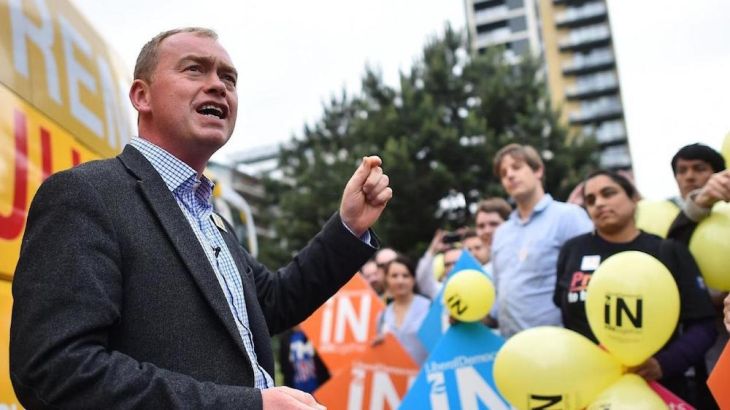Liberal Democrat beats Zac Goldsmith in UK by-election
Liberal Democrat Sarah Olney overturns huge majority to beat Zac Goldsmith, pro-Brexit former London mayoral candidate.

Britain’s pro-European Liberal Democrats have won a parliamentary by-election, toppling a prominent Brexit supporter from his seat.
Sarah Olney overturned Zac Goldsmith’s 23,000-strong majority in a contest that was widely seen to reflect public concerns about the British government’s handling of the process to leave the European Union.
Keep reading
list of 4 itemsNorthern Ireland agreement could end deadlock, restore government
Forced to become British: How Brexit created a new European diaspora
Number of Britons regretting Brexit hits new record high: Survey
The announcement that Olney had won London’s Richmond constituency early on Friday morning marked the first major success for the Liberal Democrats since its leader Tim Farron made staying in the EU a key party platform.
Since the June 23 referendum, there has been little idea about the form the UK’s divorce from the EU will take.
Goldsmith, the former Conservative Party London mayoral candidate, had vacated his seat in protest at government plans to build a third runway at London’s Heathrow airport.
Although he stood as an independent, the Conservatives did not field a candidate to run against him.
Goldsmith was a backer of the decision to leave the EU but more than 70 percent of his constituents had voted to remain in the bloc.
Clegg’s reaction
Commenting on Twitter shortly after the announcement, Nick Clegg, former UK deputy prime minister, said the result showed “hard Brexiteers that they need to think again”.
Speaking to the BBC, Clegg, a former Liberal Democrat leader, said those who had voted to remain in the EU felt they were being “airbrushed” out of the government’s plans.
I will stand up for the open, tolerant, united Britain that we believe in. pic.twitter.com/c51dqx1UDN
— Sarah Olney (@sarahjolney1) December 2, 2016
For her part, Theresa May, the Conservative prime minister, said the Richmond by-election result does not change Britain’s Brexit strategy or its plans to invoke Article 50 of the EU’s Lisbon Treaty to begin the withdrawal process by the end of March next year.
Since the Brexit vote, investors have watched for clues as to how the Tory government will seek to maximise single-market access while also curbing immigration from the EU.
Government ministers have provided often contradictory messages about whether there will be a “soft” or “hard” Brexit.
The latter, supported by hardliners, accepts leaving the European single market as a cost of control over freedom of movement.
Those who voted to remain in the EU want a softer deal, which ensures freedom of movement and single market access.